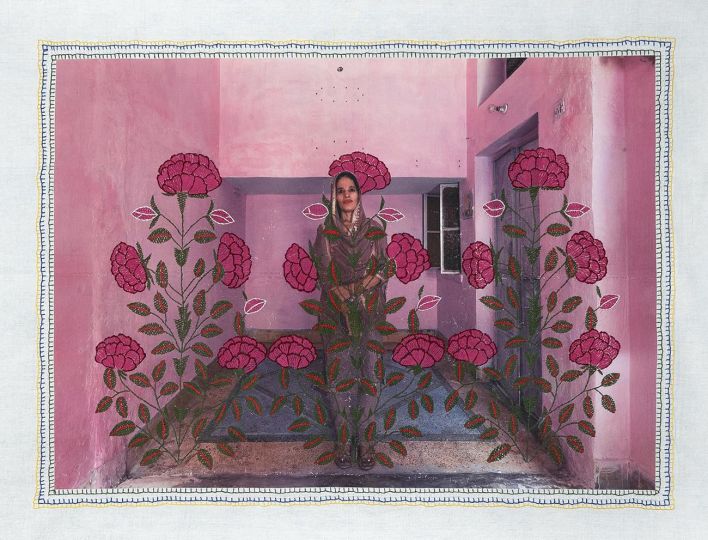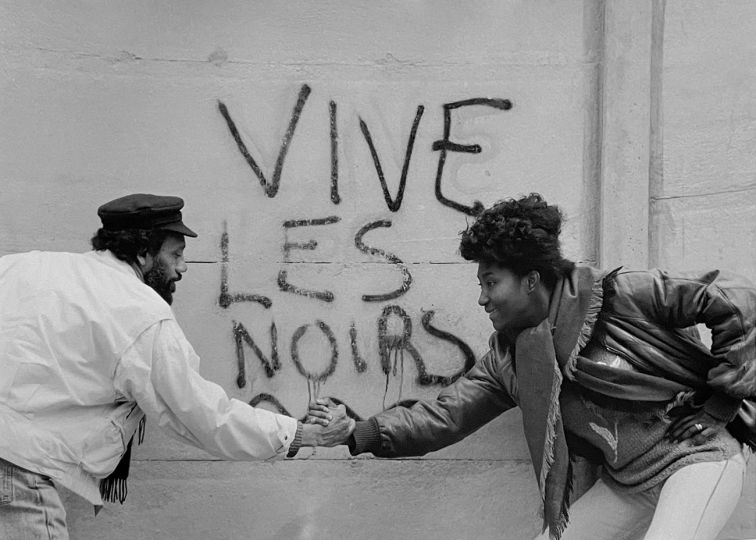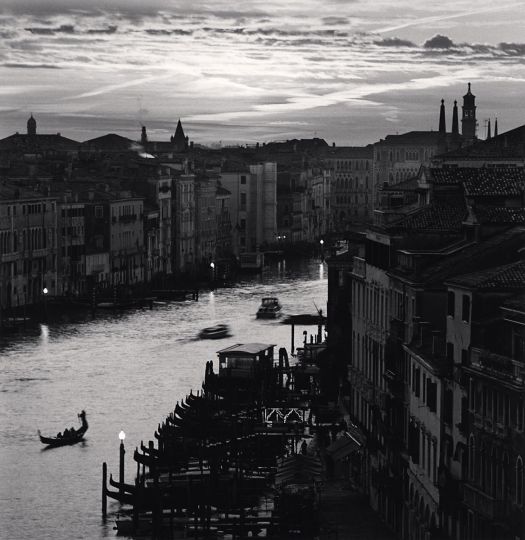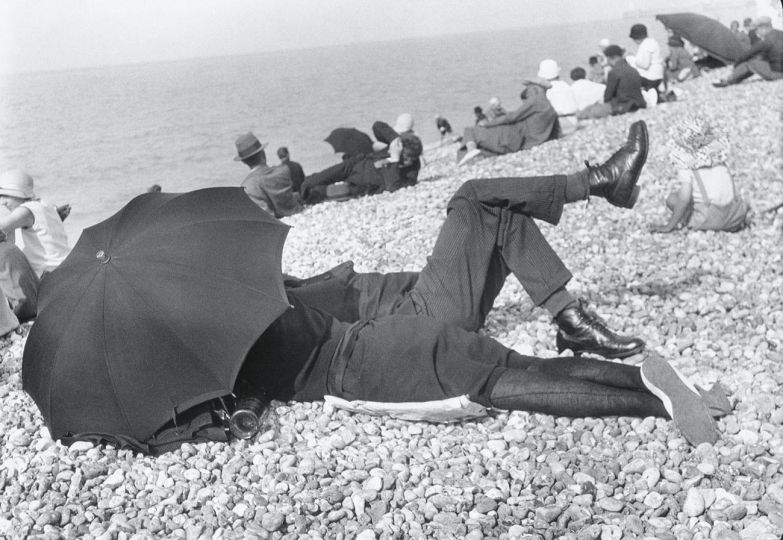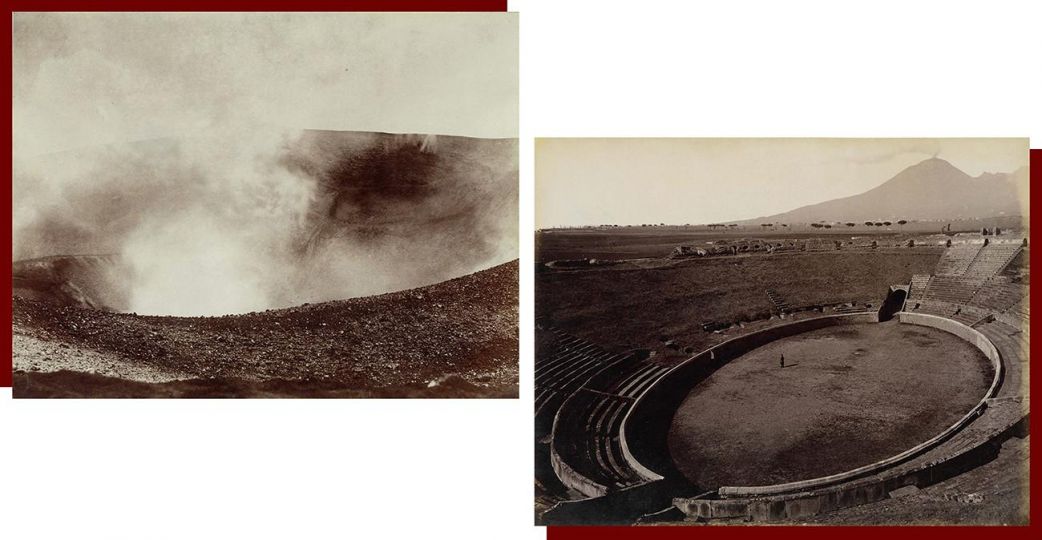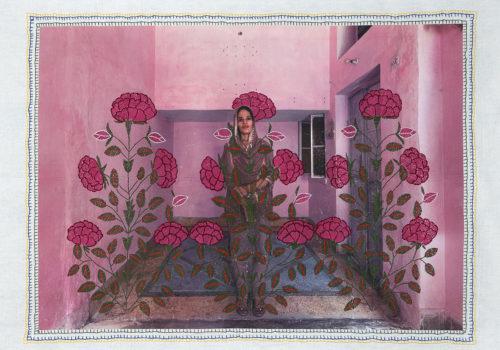Jean-Marie Donat collects photographs of artificial Christmas trees, those featuring the Coca-Cola logo or representing televisions. This initial observation leads us to two conclusions. Jean-Marie Donat has an exceptional collection which is true. Jean-Marie Donat has mental health problems which deserves to be nuanced.
Four decades of collecting photographs that today are considered vernacular have forged this collection. The market value of these images is as heterogeneous as their origins. For the most part, the quality of the shot is questionable but that’s never what matters. They are what remains of hundreds of slices of life of hundreds of anonymous people. If they exist, it is because each of the authors was, at some point, convinced to produce a unique photograph that counts. On the sidelines of his activity as a publisher, we can say that Jean-Marie Donat has applied himself to methodically accumulating tens of thousands of units. If this regular practice, of the order of the hygiene of life, looks like at first sight a quest without end or direction, it is nevertheless a demonstration argued by the image.
It is in the meticulous organization of these some 40,000 units that we must see the real exception, the originality of this fund. These photographs gleaned from auction rooms or on the internet, hide behind the veneer of lightness a most scathing observation. What do they tell us about ourselves? That we are the architects of a sick world, drunk on our own image that we duplicate ad infinitum. That we strive to seal our lives in the passage of time thanks to photography with which we maintain an addictive and complex relationship.
Faced with all these images, Jean-Marie Donat offers us another look at photography, going against the current habits of reading images. Today we zap, we scroll, we stream, we flash up or down… Barely seen and consumed, the image is already thrown away. Conversely, this collection highlights photographs that are difficult to read and decipher. they require approaching, entering into them, building a bond. As if, to understand them, one had to surrender to the mystique of the image in a kind of devotion to what it could reveal. The devil hides in the details, in the backgrounds, in the tiny signs, in the attitudes of the supporting characters. A pioneer, Jean-Marie Donat made this collection an ode to photobombing, long before anyone bothered to invent a word to describe these involuntary intrusions in the background.
Never cynical, often ironic, humor is omnipresent here. It makes the message stronger and the observation less bitter. On the other hand, there should be no judgment or contempt. The collector assumes and claims to be part of the world of men he depicts. The proof is: he is the first to give in to the sirens of possession and accumulation. So let’s laugh at this world that is turning upside down, let’s laugh at these photographs which, without this new destiny, would have sunk into the cemetery of images, like worthless objects condemned to disappear.
Audrey Hoareau
Exhibition co-curator
Jean Marie Donat
Born in 1962 in Paris, Jean-Marie Donat is a publisher, collector and artist. For more than 30 years, he has been building a vast photographic corpus around a strong idea: to give a singular reading of the century.
The series of photographs from his collection are the subject of books in the form of rare limited edition editions. His collection has been featured in numerous exhibitions, including the Rencontres d’Arles (2015), the Hamburg Triennale (2018), Image Vevey (2020) and the Centquatre-Paris (2021).
In parallel with his artistic practice, Jean-Marie Donat now directs the editorial creation agency AllRight. In 2015, he also founded Innocences, a publishing house dedicated to images in all their forms.
The collection
The collection brings together more than 40,000 photographs, ekta (slides) and negatives, from all over the world. It covers nearly a century of photography history (1880-1980).
An important part is made up of vernacular, anonymous images, chosen for the cultural and social testimony they convey, but also for the deep humanity that emanates from them. From this material, he has compiled, among other things, more than 200 thematic series. For some, his artistic practice leads him to transfigure the subject.
Collection Jean-Marie Donat : Tout Doit Disparaître
Until February 12, 2023
CRP / Centre régional de la photographie Hauts-de-France
Place des Nations
59282 Douchy-les-Mines / France
www.crp.photo




